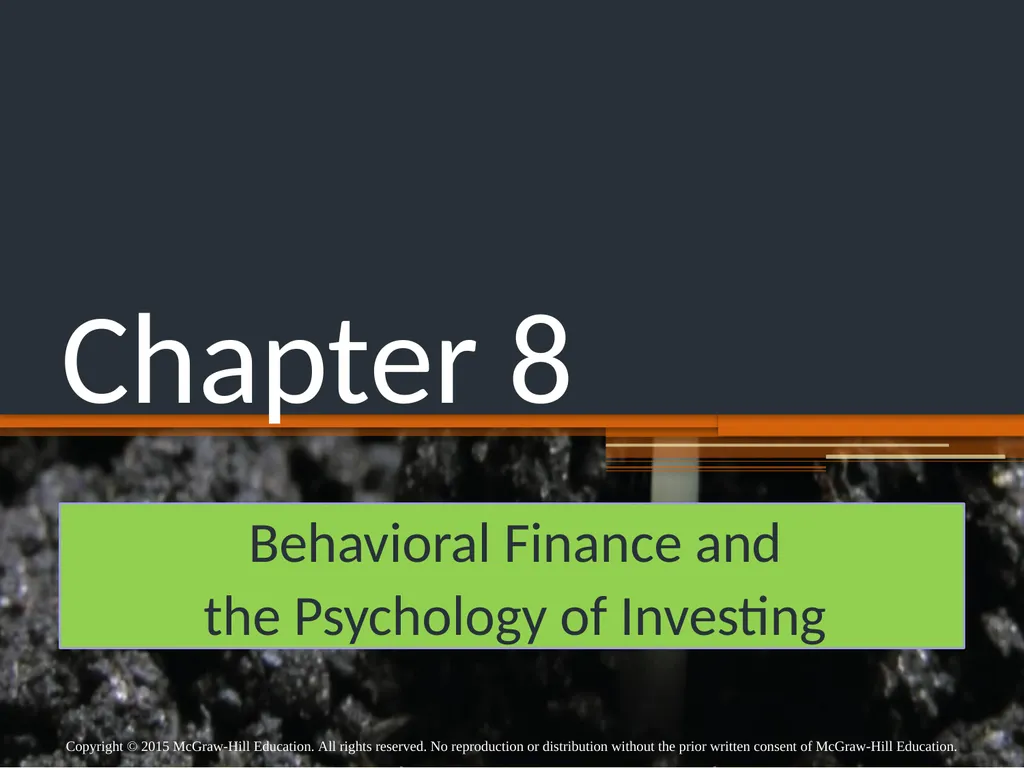
Chapter 8 Behavioral Finance and the Psychology of
Author: aaron | Published: 2025-06-27
Description: Chapter 8 Behavioral Finance and the Psychology of Investing Behavioral Finance the Psychology of Investing The investors chief problem, and even his worst enemy, is likely to be himself. Benjamin Graham There are three factors that
Download Presentation
Download the PPT/PDF: Download
Transcript:
Loading transcriptÖ